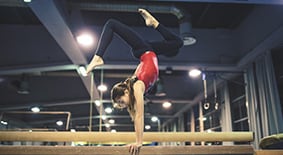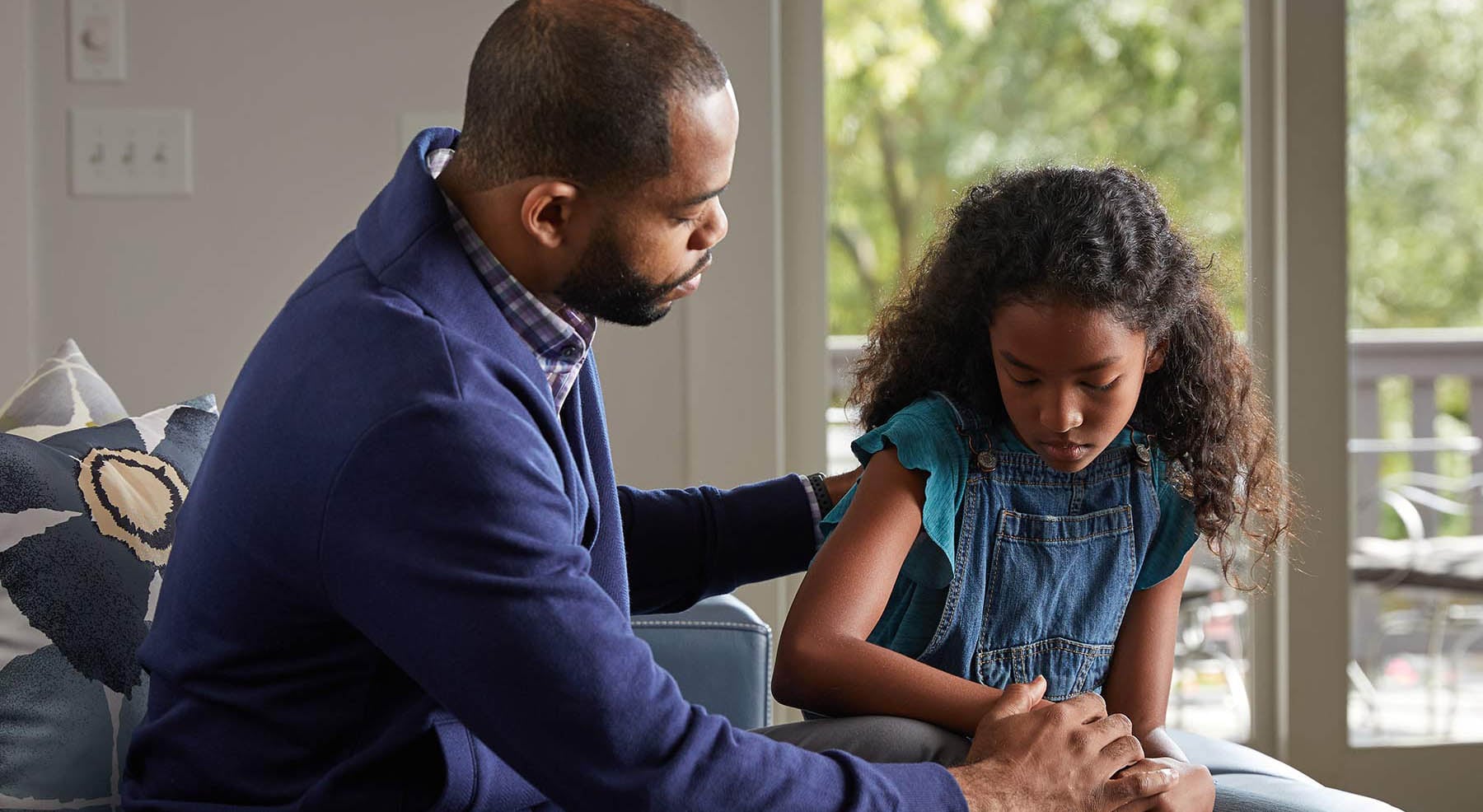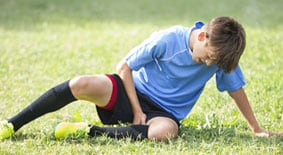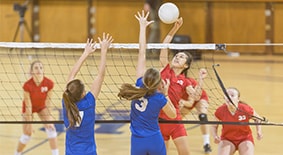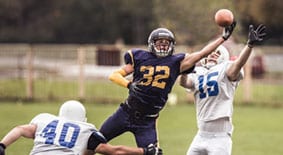The Unique Challenges Facing Girls in Sports
With a rise in girls’ and women’s sports, it’s important to understand that female athletes are built differently than their male counterparts, facing their own unique challenges. Dr. Crystal Perkins, an expert in pediatric orthopedics and sports medicine, discusses these differences as well as one example of a common injury affecting female athletes.
At Children’s Healthcare of Atlanta, we know that kids and teens are built differently than adults, and we also understand that not all young athletes are built the same. Our team of sports medicine physicians, physical therapists and athletic trainers are specially trained to treat all young athletes, with each of their specific and unique needs in mind.
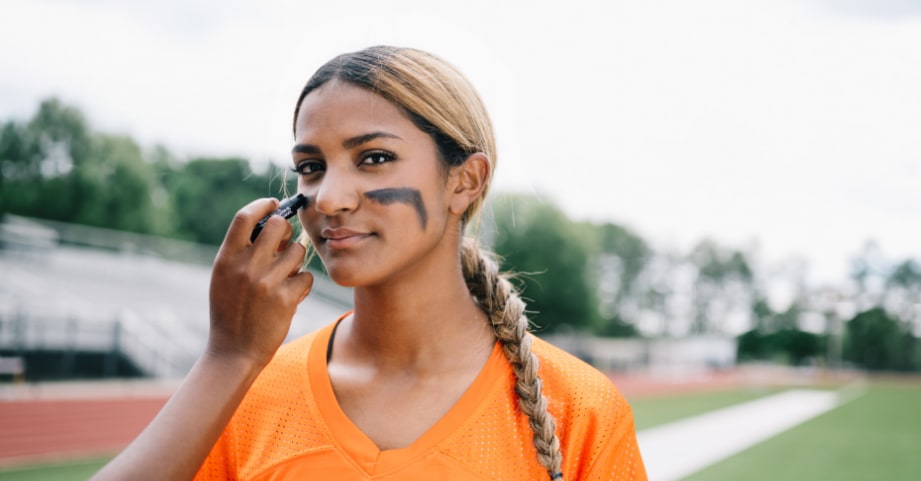
Girls’ and women’s sports are quickly rising in popularity in the United States. Girls’ flag football represents one of the fastest growing high school sports in the country, and Georgia has been a leader in that surge. Since the Georgia High School Association formally sanctioned girls flag football as a sport in 2020, the sport has exploded in popularity.
“With the continued growth of girls and women in sports, it is important to recognize that there are physiological differences in females, as compared to their male counterparts, that make their training and injuries unique,” explains Crystal Perkins, MD, Medical Director, Orthopaedic Quality and Outcomes and Orthopedic Surgeon at Children’s.
Some of the ways female bodies differ from males include:
- Slightly more body fat and decreased overall muscle volume, resulting in reduced upper body strength as well as lower metabolic rates.
- Smaller heart and lower lung capacity, resulting in a cardiac output which is nearly two-thirds of their male counterparts.
- Lower overall blood volume and iron stores, increasing the risk for iron deficiency.
These physiological differences can have a significant impact on sports performance and must be considered when training and treating female athletes. When your teen athlete is injured playing sports, it’s important to take them to a specialist who understands their specific needs as a dedicated athlete and as a teen girl.
While the risk for many orthopedic injuries is similar between males and females, females are at increased risk for some injuries—most notably anterior cruciate ligament (ACL) tears. The ACL is one of four main knee ligaments and acts to stabilize the knee. The ACL connects the thighbone (femur) to the shinbone (tibia), and is important for running, jumping and turning quickly—all skills that developing athletes work on often.
Girls are four to eight times more likely to suffer an ACL injury than boys, especially in cutting and pivoting sports like soccer, basketball, lacrosse, and flag football. There are many factors thought to contribute to this increased risk, including:
- Hips: Girls have wider hips than boys, which increases the angle on the knee joint. This can put more force on the ACL, especially with jumping, landing and cutting movements.
- Knees: The ACL passes through the middle of the knee in an area called the intercondylar notch. Girls have a narrower notch on the inside of their knee, which leaves the ACL more subject to getting injured during sudden stops or changes in direction.
- Muscular Balance: The hamstring muscles in the back of the thigh contribute to forces which protect the ACL. When the quadriceps muscle in the front of the thigh stronger than the hamstrings, the ACL can be at increased risk for injury. This muscular balance is different in female vs male athletes.
- Hormones: Testosterone helps increase muscle density, and female athletes typically have less testosterone than males. Females also have more estrogen, which is essential to bone growth, but estrogen can also cause more laxity in tendons and ligaments, making girls and women more prone to injury.
A higher risk of ACL tears is just one result of the physiological differences between female teen athletes and their male peers. Seeing a specialist that is well versed in the physiological differences in female athletes is key to helping ensure your child can continue playing their sport after injury.
“By understanding these differences and increased risk for injury, the sports medicine community has developed programs for preventing injuries like ACL tears in young female athletes, and we’ve seen fewer injuries as a result,” Dr. Perkins says.
Where you take them matters.
The sports medicine team at Children’s is composed of sports medicine surgeons, primary care sports medicine physicians, physical therapists and athletic trainers that understand the unique needs of the female athlete and the physiological differences between growing athletes. Our team members are experts in their field with the knowledge and experience to treat all of your athlete’s injuries, whether that be an ankle sprain, concussion, ACL tear or shoulder dislocation. As Georgia’s teen injury experts, our goals are to provide specialized treatment to your teen’s injury so that they can return to the field healthy and primed for future success.
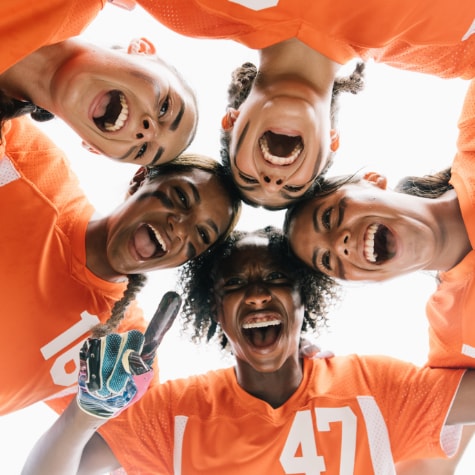
Whether your teen athlete plays one sport or 10, where you take them matters
The highly qualified and experienced pediatric sports medicine specialists at Children’s are dedicated exclusively to youth and teen athletes. Each member of our team is focused on getting kids back to doing the things they love most in the safest ways possible.
Find a SpecialistKeeping Young Athletes Healthy
Crystal Perkins, MD, is a board-certified pediatric orthopedic surgeon and Medical Director of Orthopaedic Quality and Outcomes at Children’s Healthcare of Atlanta. She specializes in the treatment of sports and traumatic injuries in children, adolescents and young adults, including injuries related to the hip, knee, ankle, shoulder and elbow. Dr. Perkins is committed to improving patient care and advancing medicine through quality and outcomes research and is an active member of several multicenter study groups. In her free time, Dr. Perkins regularly competes in triathlons.
This content is general information and is not specific medical advice. Always consult with a doctor or healthcare provider if you have any questions or concerns about the health of a child. In case of an urgent concern or emergency, call 911 or go to the nearest emergency department right away. Some physicians and affiliated healthcare professionals on the Children’s Healthcare of Atlanta team are independent providers and are not our employees.
Contact Us 404-255-1933
